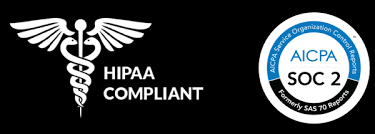The Impact of Artificial Intelligence and Machine Learning on SEO Marketing

The future of SEO is being significantly shaped by advancements in artificial intelligence (AI) and machine learning, leading to a more user-centric, ethical, and technically advanced approach. AI-powered tools are revolutionizing keyword research, content creation, and website optimization by analyzing vast amounts of data to identify trends and patterns that humans might miss. Machine learning algorithms enhance search engines' ability to understand user intent and deliver more relevant search results.
These technologies also aid in automating routine SEO tasks, improving accuracy, and enabling real-time adjustments to SEO strategies. Furthermore, the integration of AI and machine learning promotes ethical SEO practices by discouraging black-hat techniques and fostering transparency and authenticity in digital marketing. As these technologies continue to evolve, businesses must adapt to stay competitive and meet the growing expectations of search engine users.
Prospects can now discover solutions and companies on platforms like Perplexity and GPT, transforming the way users find and engage with businesses. By utilizing AI-driven search and conversational AI tools, these platforms offer more personalized and contextually relevant results, improving the user experience and simplifying the process for prospects to find precisely what they need. Marketers should focus on optimizing their presence on these platforms to enhance visibility.
Here are some key trends and strategies to consider:
Key Trends in SEO
AI and Machine Learning : AI and machine learning are revolutionizing SEO by enabling search engines to better understand user intent and deliver more relevant results. Technologies like Google's RankBrain and BERT, as well as generative AI models like GPT-4, are enhancing search algorithms, making them more sophisticated and accurate in interpreting user queries and context[3][4][5].
User Experience (UX) : Google continues to prioritize user experience as a critical ranking factor. This includes metrics like Core Web Vitals, which assess the loading speed, interactivity, and visual stability of web pages. Ensuring a smooth, responsive, and satisfying user experience is essential for maintaining high search rankings[3][4].
Ethical and High-Quality Content : Google's emphasis on Experience, Expertise, Authoritativeness, and Trustworthiness (E-E-A-T) underscores the importance of producing ethical, high-quality content. This trend encourages content that is not only relevant but also credible and authoritative, helping to build trust with users and search engines alike[3][4].
Voice Search Optimization : With the increasing use of smart speakers and virtual assistants, optimizing for voice search is becoming more important. This involves creating content that aligns with spoken-word search terms and focusing on featured snippets, which are often read aloud in voice search results[4].
Video Content : Video content is gaining prominence in SEO strategies. Platforms like YouTube, Instagram Reels, and TikTok are crucial for engaging audiences. Optimizing video titles, descriptions, and tags can help improve search visibility and reach[4].
Local SEO : Local SEO remains vital for businesses targeting local markets. Optimizing Google Business Profiles and ensuring consistent, accurate information across listings and directories can drive local traffic and improve search rankings[4].
Strategies for Adapting to SEO Changes
Leverage AI Tools : Integrating AI-powered tools can automate various SEO tasks, such as keyword research, content optimization, and performance analysis. These tools provide deeper insights and recommendations, helping to refine SEO strategies effectively[5].
Focus on User Intent : Understanding and aligning with user intent is crucial. This involves creating content that directly addresses users' queries and needs, ensuring it is informative, engaging, and tailored to their preferences[3][5].
Optimize for Core Web Vitals : Improving Core Web Vitals is essential for enhancing user experience. This includes optimizing page loading speeds, ensuring interactivity, and maintaining visual stability. Regular site audits can help identify and fix issues affecting these metrics[3][5].
Produce High-Quality, Authoritative Content : Creating content that demonstrates expertise and authority in your field is key. This includes citing credible sources, building high-quality backlinks, and establishing a strong brand identity[4].
Adapt to Voice Search : To optimize for voice search, focus on natural language and conversational keywords. Creating FAQ-style content and optimizing for featured snippets can improve visibility in voice search results[4].
Embrace Video SEO : Incorporate video content into your SEO strategy. Ensure videos are engaging, informative, and optimized for search engines by using relevant keywords in titles, descriptions, and tags. Transcribing videos can also enhance accessibility and SEO[4].
Maintain a Balance Between AI and Human Creativity : While AI can streamline many aspects of SEO, human creativity and expertise remain indispensable. Combining AI's efficiency with human-driven content can create unique, engaging, and trustworthy content that stands out[5].
In summary, the future of SEO is intertwined with AI advancements, focusing on user experience, ethical content, and technical optimization. Adapting to these changes by leveraging AI tools, understanding user intent, and maintaining high-quality content will be crucial for success in the evolving SEO landscape.
Citations:
- 1. https://maven.com/spriestersbach/future-of-seo
- 2. https://searchengineland.com/future-seo-ai-powered-world-440023
- 3. https://www.semrush.com/blog/future-of-seo/
- 4. https://www.linkedin.com/pulse/future-seo-predictions-strategies-2024-infiraise-he12f
- 5. https://www.forbes.com/sites/forbesagencycouncil/2024/02/02/ai-is-driving-the-future-of-seo-how-to-adapt/



